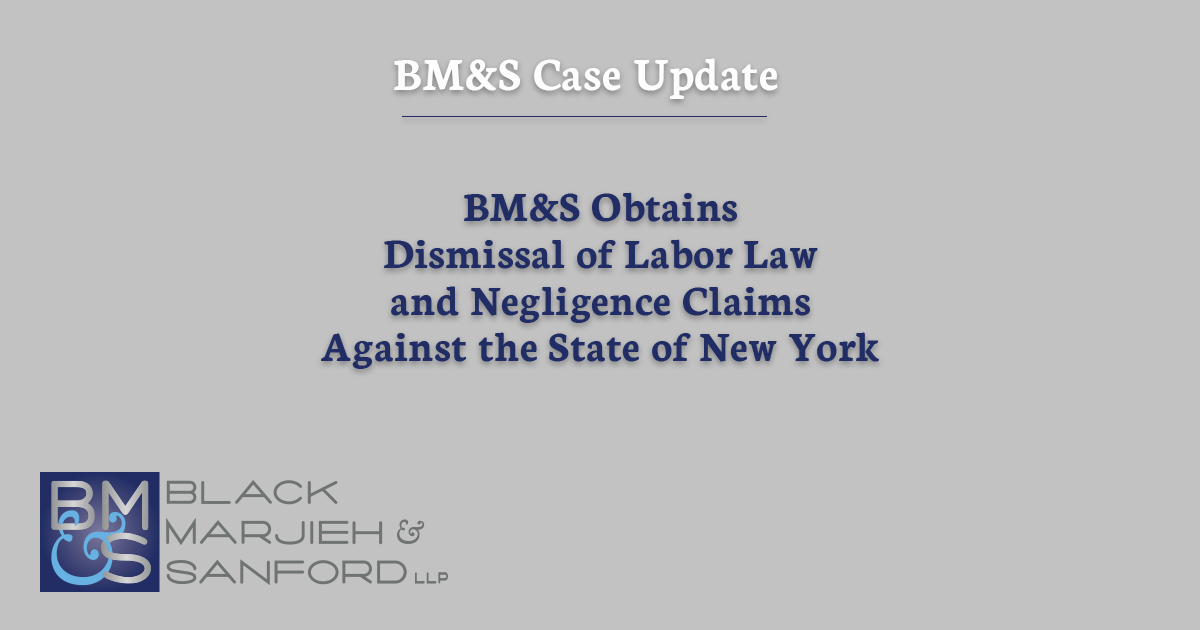BM&S Obtains Dismissal of Labor Law and Negligence Claims Against the State of New York

In Bosquez v. The State of New York, claimant asserted New York Labor Law and negligence claims against the State of New York (the “State”) in the Court of Claims. Claimant alleged that he sustained catastrophic personal injuries resulting from being crushed in a telescopic door while working on a renovation project at a pier in New York City, and that the State, as record owner of the pier, should be strictly liable for his injuries under the Labor Law. Prior to engaging in discovery, BM&S filed a motion for summary judgment seeking dismissal of all claims against the State on the grounds that the State is not a proper New York Labor Law Defendant relying upon the First Department’s decision in Costa v. State of New York (1st Dep’t 2016). In this regard, BM&S argued that the State, though the record or “fee” owner of the pier, was legislatively exempted under the Hudson River Park Act (“Act”) from ownership-related liabilities of such property, including under the Labor Law, and thus was not a proper party to this claim. Claimant opposed the motion arguing that it was premature as discovery was not complete and that the State was nonetheless strictly liable as a record owner of the pier. In reply, BM&S successfully argued that no further discovery could undermine the controlling First Department decision in Costa or the Act insulating the State from Labor Law liability under the circumstances of this case. The Court agreed, finding that the legislative language and historical context of the Act and the Labor Law, in combination with an affidavit from the State and various property records submitted in support of our motion, entitled the State to dismissal of all claims against it as a matter of law. The Court also dismissed claimant’s negligence claim as the uncontroverted evidence demonstrated that the State did not supervise the means and methods of claimant’s work, did not possess any supervisory duties, and did not create or have actual notice of any alleged injury-producing condition. This decision should be considered a far-reaching victory for the State as it establishes further precedent to defend against similar claims involving Hudson River Park property in the future.
